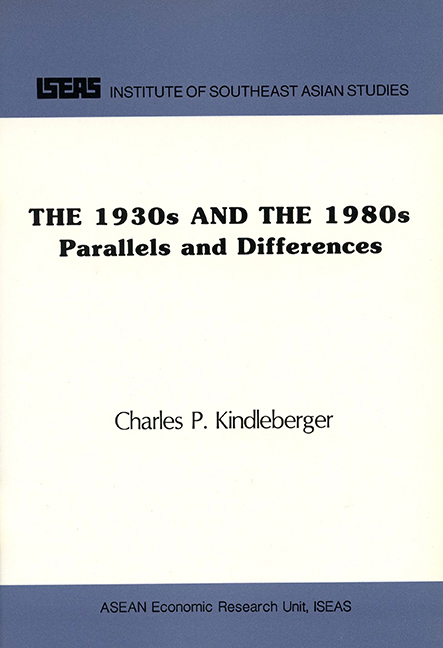Closing Remarks
Published online by Cambridge University Press: 21 October 2015
Summary
Ladies and Gentlemen
The interest in terms of listening to a person of the calibre and experience of Professor Kindleberger is that, I suppose the brain expands as you get older because his interest has widened rather than narrowed as is well known. And the guiding principle has been curiosity – curiosity to try and learn, curiosity to try and explain and explore new avenues. What he has been expounding and passing to people who have come into contact with him is that you never stop learning and you always question. So, it is refreshing to listen to him, who is a trade union economist but ranges over the wide fields of political science, psychology, sociology, and so on. I am sure you would like to join me in thanking Professor Kindleberger in giving us the opportunity of ranging through this age from the 1920s to the 1980s, but even more fundamentally in ranging through the whole range of explanatory variables of any particular phenomenon. And if you have learned anything this afternoon, it is that no one solution or one explanation is going to work. For those of us who live here in Singapore, I thought, the rule of the game is how to keep one step ahead of disaster. Professor Kindleberger, thank you very much.
- Type
- Chapter
- Information
- The 1930s and the 1980sParallels and Differences, pp. 25Publisher: ISEAS–Yusof Ishak InstitutePrint publication year: 1989

